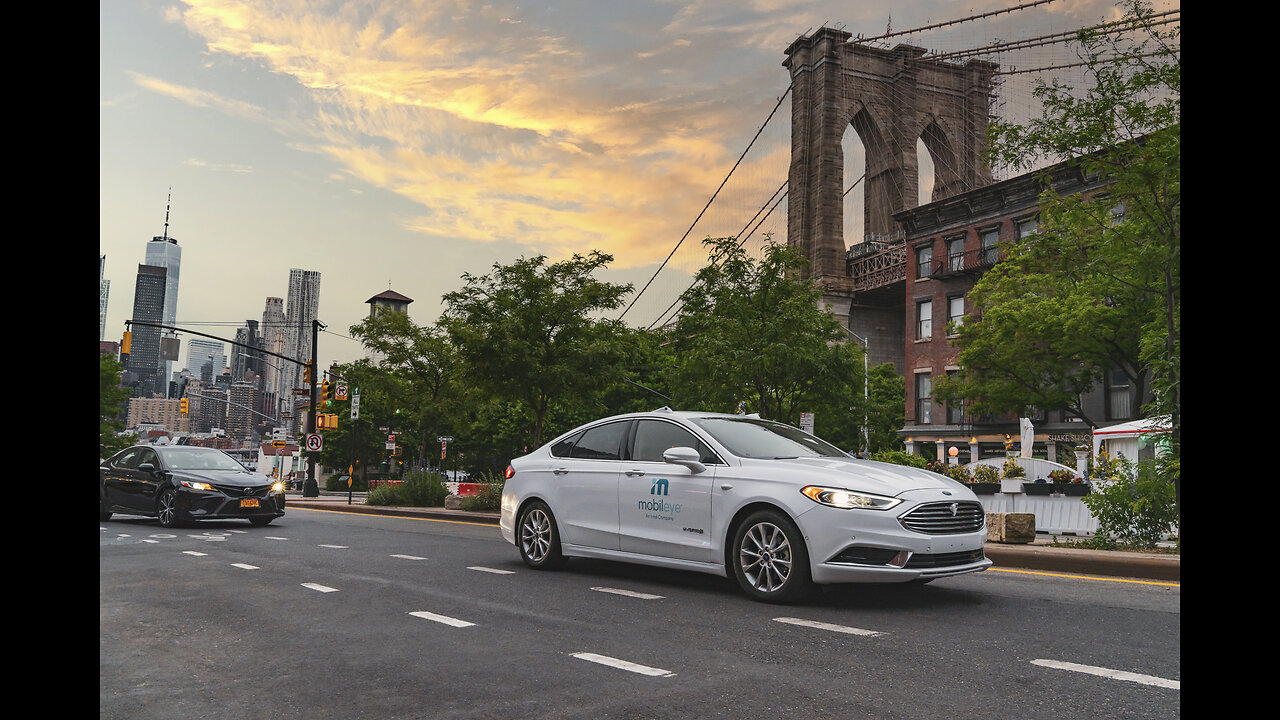Premium Only Content

New York tech gurus to play a role in federal regulation of AI - Crain's New York Business
🥇 Bonuses, Promotions, and the Best Online Casino Reviews you can trust: https://bit.ly/BigFunCasinoGame
New York tech gurus to play a role in federal regulation of AI - Crain's New York Business
If the AI supercomputers leave New Yorkers’ jobs and wellbeing intact, locals might have their local technology leaders to thank.
Sen. Majority Leader Chuck Schumer said he would entice many of them—and their colleagues around the country—to share their insights at a series of forums before Congress this fall. “We need the best of the best sitting at the table: the top AI developers, executives, scientists, advocates, community leaders, workers, national security experts—all together in one room, doing years of work in a matter of months,” Schumer said in late June, a sentiment he repeated at an event for tech leaders held by IBM and Tech:NYC earlier this week.
New York’s senior senator created a framework called the SAFE Innovation Framework, which he intends to use to develop a policy response to make sure that AI technology continues to develop without harming companies, people or national security. A new approach to tech regulation Washington has usually been behind the curve on tech regulation. The U.S. Securities and Exchange Commission has resorted to regulating the cryptocurrency industry via court cases and legal memos, and the Biden Administration’s promise to crack down on tech monopolies endured a setback after a judge told the Federal Trade Commission that it could not pause Microsoft’s plans to buy video game company Activision Blizzard.
Schumer said that even though he believed that “individuals and the private sector can’t do the work of protecting our country,” the complexity of AI means that those who are close to the technology will have to play a role in regulating it.
Earlier this spring, OpenAI CEO Sam Altman testified to Congress and noted one potential role for government—figuring out how to mitigate American job loss caused by AI's potential efficiency in industries from law to hospitality. What needs to be regulated Schumer cited four core dangers of AI: job displacement, misuse of AI by adversaries, the spread of invented news and misinformation, and amplification of bias. He also pointed to a need for a systematic way to gain transparency into how AI systems work, known as explainability. “When you ask an AI system a question and it gives you an answer—perhaps an answer you weren’t expecting—you want to know where that answer came from. You should be able to ask ‘why did AI choose this answer, over some other answer that could have also been a possibility?’” he said.
In May, a group of industry leaders put it even more succinctly—and terrifyingly—in a one-sentence warning. “Mitigating the risk of extinction from AI should be a global priority alongside other societal-scale risks such as pandemics and nuclear war,” hundreds of AI scientists and other notable figures, wrote. Who might represent New York’s AI industry New York’s sector has been building, giving Schumer plenty of talent to call on for the AI Insight Forums. By 2020, the city was home to an estimated 13% of the nation's AI workforce. Some of the early leading companies are in health care, including Paige, which applies machine learning to diagnosing cancer. In the last two quarters, upstarts like Runway, Eleven Labs and Hugging Face have each carved out a spot at the top of the heap. Runway makes tools to create videos from photos, clips and prompts. Eleven Labs generates human-sounding audio, and Hugging Face is an open-source platform for A.I. models.
Meanwhile, the city’s legacy consulting and technology firms have been working to find use cases for and create guidelines around safety and privacy for A.I. tools. In June, Accenture invested $3 billion in A.I. to create solutions and models for clients, while also announcing the goal of figuring out how to use the tech responsibly. On Tuesday, McKinsey announced it would be collaborating with Toronto-based Cohere, which makes enterprise AI platforms, on solutions for its clients. Midtown-based PwC made a $1 billion, three-year investment in AI as well, which includes a relationship with Microsoft to scale its OpenAI GPT-4 in its business offerings.
New York City also has a first-in-the-nation law to control for AI bias in hiring, which went into effect earlier this month.
#AINews, #ArtificialIntelligence, #FutureOfTech, #AIAdvancements, #TechNews, #AIRevolution, #AIInnovation...
-
 LIVE
LIVE
TonYGaMinG
3 hours ago🟢 ABI WITH FRIENDS | 🍩JOE DONUTS | 😶 🌫 VLADSGAMINGCARTEL |
77 watching -
 21:24
21:24
marcushouse
9 hours ago $0.06 earnedStarship Flight 10: Go or No? 🚀
8.66K8 -
 LIVE
LIVE
MrR4ger
14 hours agoSUNDAY FUNDAY w/ R4GER - VARIETY / DIABLO 4/ FOR HONOR / ETC?
99 watching -
 5:40
5:40
WhaddoYouMeme
3 days ago $0.16 earnedThey’re Calling This the End of Masculinity
11.4K13 -
 15:24
15:24
Tactical Advisor
18 hours agoBest 2011 of 2025 | Bul Armory Ultralight Pro
13.7K -
 27:31
27:31
True Crime | Unsolved Cases | Mysterious Stories
2 days ago $0.09 earnedThe Hong Kong Schoolgirl Mystery – 5 Mysterious Unsolved Cases (Part 8)
11.8K2 -
 7:19
7:19
China Uncensored
1 day agoChina is DONE in the South China Sea
10.8K26 -
 LIVE
LIVE
Joe Donuts Live
5 hours ago🟢 Loot Rats Unleashed: Arena Breakout Chaos! | Joe + Tony + Vlad
238 watching -
 30:37
30:37
Degenerate Plays
16 hours ago $0.01 earnedThis College Is Out Of Control - GTA Online : Part 9
7.19K -
 16:28
16:28
Mrgunsngear
3 days ago $0.49 earnedBeretta 92XI SAO Sabbia Review - A Few Surprises
9.36K6